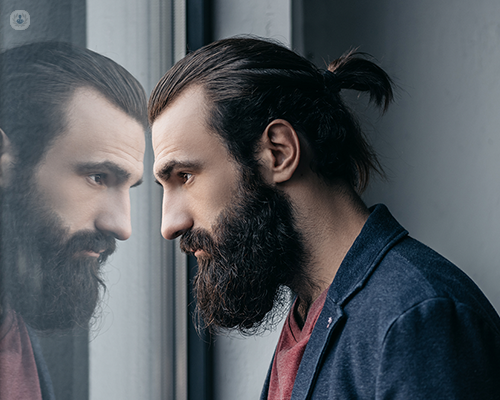How to avoid succumbing to Coronavirus (Covid-19) related anxiety
Autore:The novel coronavirus COVID-19 has created a period of anxiety and uncertainty in the UK and on an international scale. Amidst the confusion and nervousness, it’s vital to look after your mental health as well as physical health. You should also do all you can to help prevent the virus’ spread.
This new situation is bound to create anxiety as we think of our health, the health of loved ones and how life in the near future will be. Anxiety can cause us to be restless, irritable or on edge. It can also make it difficult to concentrate or put us in ‘fight or flight’ mode. However, there are several things we can remember and steps to take that help to avoid succumbing to anxiety.

Firstly, this is a new and scary experience for everyone
Many of us have never dealt with a situation like the one COVID-19 has created. You aren’t alone in your worries, fears and doubts concerning the present and future problems it creates. While there may be friends or family members that you cannot see for a time, technology enables you to keep in contact with them and share your thoughts and feelings on the situation.
Furthermore, anxiety is a very common condition and can be triggered by a long list of situations. It’s not unusual to feel stressed or on alert from difficult situations, especially at this time.
We can’t control some of the virus’ impact, but we can control our response
While many aspects of the virus’ impact are out of our hands, we can control our response to it. By taking several actions, you can keep your mind in a calmer state of wellbeing, which as a result can also keep your physical response calm.
Do remember to:
- Use breathing exercises to calm down at peak stress.
- Do exercise if you can. If you are in self-isolation, search for exercise or yoga routines that you can do at home.
- Eat well.
- Focus on something else. Mindfulness can help with this, or you may start a new hobby or do an activity like reading.
- Talk to someone who is in a calm state of mind.
Do remember not to:
- Focus on something that is out of your control.
- Emotionally isolate yourself.
- Use harmful substances to try and cope with anxiety.
Your exposure to coronavirus news could elevate anxiety
You may be tempted to frequently check for updates every couple of hours (or even several times an hour). However, if you feel any anxiety, learn what is useful, relevant and reliable but stop there. What’s important over the coming weeks and months is to find the balance that leaves you informed and prepared but that also doesn’t trigger anxiety.
Be aware that your anxiety can spread to others, just as theirs can spread to you . Try to steer away from virus related topics if anyone’s anxiety starts to rise.
Get the right news sources (there’s a lot of misinformation that triggers anxiety)
Make sure you have reliable sources of information. This way, you know that the actions you take are safe and evidence-based recommendations. Top sources are:
- The World Health Organisation (WHO)
- Public Health England, an official agency of the UK’s Department of health
- The NHS
- The national news
Be wary of social media. The NHS, for example, is having to take action against coronavirus fake news with the help of social media giants like Twitter, Instagram and Facebook. Google is also assisting in taking down false news from unreliable sources. Some of these fake news sites or articles can be scaremongering or state false facts and statistics.
There are false reports that suggest you can be protected from COVID-19 by eating garlic, drinking water every 15 minutes or making home-made hand sanitizers. These are untrue. If you implement several “tricks” that you see online, you may put yourself at risk and be in a false sense of calm. To ease anxiety, follow what official health organisations, such as the previously mentioned sources, advise you to do. They’re the most efficient at keeping you safe.
Don’t forget that your brain and body are in sync. Ensure you look after both to keep anxiety at bay.
In some aspects, your brain and body’s health go hand in hand. If you’re feeling stressed, you may start to notice some of the anxiety’s physical symptoms such as shortness of breath, palpitations, stomach-churning, shaking and sweatiness of the hands.
Nutrition and energy are fundamental to the functioning of our mind’s ability to manage emotions like anxiety. Rational thinking is harder when sleep-deprived or lacking nutrients.
Get enough sleep (most adults require 7 to 9 hours) and rest. You should also eat well and keep active. Anxiety can cause people to overeat or undereat and this results in a lack of nutrients for your brain and body.
Finally, remember that news around the virus’ symptoms and its impact on society are always developing. Be cautious about contracting and spreading the virus for your own health and for the health of others, but don’t panic. If you follow the advice of trustworthy health organisations, you’ll have the best chance of keeping yourself safe and maintaining a low level of anxiety.


